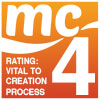I’m sitting down right now, on my couch, on a Saturday afternoon. My spouse lured me here from my office room. She started play the film “Dear Mr. Watterson” and I couldn’t help but be drawn in (no pun intended) to the next room. She is pregnant and our baby boy is due in January. We are going to name him Calvin, after our childhood favorite comic character. So now you know why, on a Saturday afternoon in October, we are both watching this documentary intently.
I hadn’t seen the documentary until now, for whatever reason. I think its because I know a lot about what is being covered in the doc. I remember, when the film came out, that I wasn’t sure I agreed with the premise. Watterson didn’t want attention for himself as a person and wanted his comic to speak to the public for him. I knew all of that and I remember just thinking that the documentary premise was kind of crossing a line.
Watching it – its actually really good. I like the way that the filmmakers are educating the audience on the history and process of how comics work.
But that isn’t what this post is about. About halfway through the film someone mentioned a speech that Bill Watterson gave in 1989 at a comics conference. I immediately googled it, found it, started reading and then immediately realized a copy of the speech needed to be on MakingComics.com.
And, so, here it is. If I’m not supposed to have it posted on this site – please let me know.
-Patrick
“The Cheapening of the Comics”
A Speech by Bill Watterson
10/27/1979
Originally found on brunothebandit.com
Bill Watterson (creator of Calvin & Hobbes) delivered the following speech at the Festival of Cartoon Art, held at Ohio State University in October 1989. Here he reflects on the Golden Age of comics, attacks the miserable state of modern strips, and suggests ideas on how the situation could be improved.
I received a letter from a 10-year-old this morning. He wrote, “Dear Mr. Watterson, I have been reading Calvin and Hobbes for a long time, and I’d like to know a few things. First, do you like the drawing of Calvin and Hobbes I did at the bottom of the page? Are you married, and do you have any kids? Have you ever been convicted of a felony?” What interested me about this last question was that he didn’t ask if I’d been apprehended or arrested, but if I’d been convicted. Maybe a lot of cartoonists get off on technicalities, I don’t know. It also interests me that he naturally assumed I wasn’t trifling with misdemeanors, but had gone straight to aggravated assaults and car thefts.






 Plotting out perspective for comic book page/panel composition is paramount to building great art. One of the hardest elements of composing perspective for a panel is getting all of the measurements just right so that all of the angles for your environmental elements within your panel come out right. Sergey Kritskiy’s perspective tool allows you to create amazingly accurate grids for your comic within seconds.
Plotting out perspective for comic book page/panel composition is paramount to building great art. One of the hardest elements of composing perspective for a panel is getting all of the measurements just right so that all of the angles for your environmental elements within your panel come out right. Sergey Kritskiy’s perspective tool allows you to create amazingly accurate grids for your comic within seconds.

